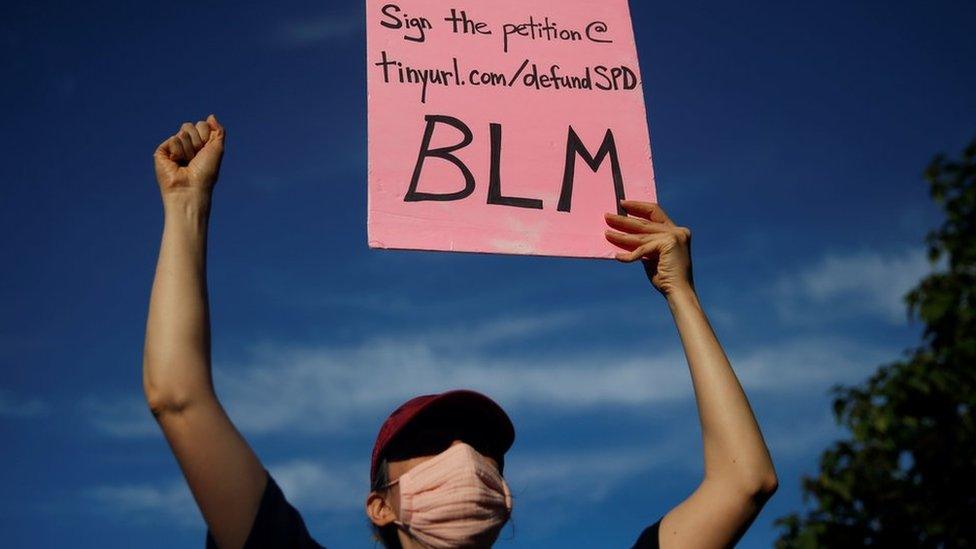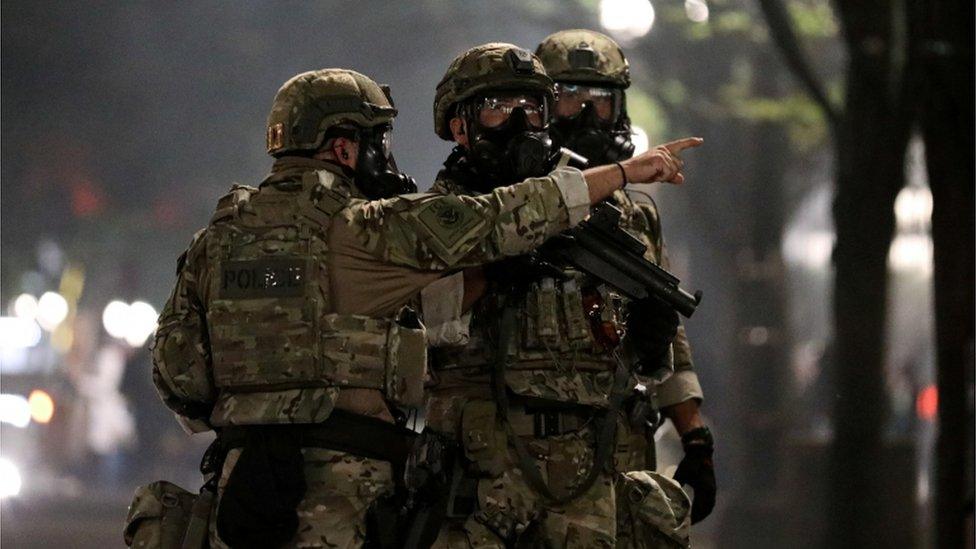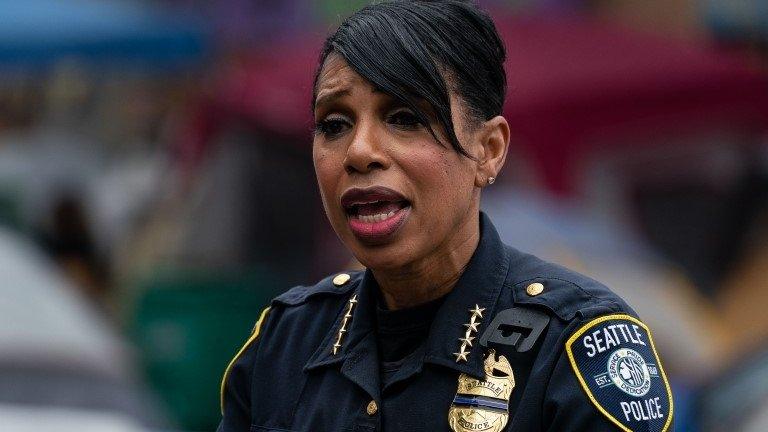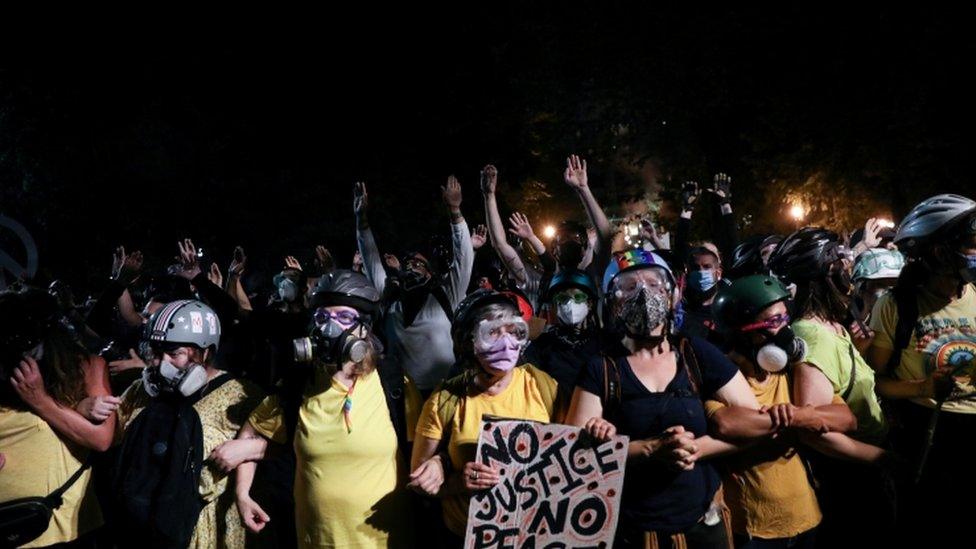Seattle sued by family of man killed in autonomous protest zone
- Published
Aerial shots of the protest zone before it was dismantled
The family of a 19-year-old man who was killed in Seattle's autonomous protest zone in June have filed a wrongful-death lawsuit against the city.
Lorenzo Anderson's family say Seattle created unsafe conditions by allowing the existence of the Capitol Hill Occupied Protest (Chop) zone.
The area set up after George Floyd's death spanned six city blocks before it was torn down on 1 July.
Protests have continued, and President Trump has threatened to send troops.
Anderson's mother, who filed the lawsuit on Monday, argued that medical officials failed to give life-saving assistance to her son after he was shot in the early hours of 20 June.
"I just feel like the city let us down," Donnitta Sinclair told KOMO-TV on Monday.

Protesters also refer to it as the Capitol Hill Occupied Protest, or Chop
"It let my son down, it let me down. It let the community down," she said, adding that Anderson, an aspiring rapper who graduated high school the day before his death, would have been celebrating his 20th birthday this week.
No suspect has yet been arrested in connection to his shooting death.
According to the family, video recorded from the scene shows medical officials refusing to enter the Chop zone without a police escort. The lawsuit claims Anderson lay bleeding in the street for 20 minutes before a volunteer medic transported him to hospital, where he died.
The Anderson family's lawyer Mark Lindquist told KIRO-TV that officers on the ground waited too long for authorisation to act.
"Politics got ahead of public safety here," he said. "City leaders seemed to be more focused on their own agenda than on the safety of the community."
"I wish one or two or three [commanders] would have taken it into their own heart and compassion to say, 'I'm just gonna help this young man, period'," Anderson's mother told KOMO-TV. "And not about being a police or not being police, but just being a human being."
Anderson was wounded just before another 33-year-old man was also shot in an incident that is not thought to be connected.
Over the next ten days, three more shootings took place in Chop, ending the public's tolerance for the three-week occupation.
Protests have continued around the country since the 25 March death of George Floyd, and have been particularly large in West Coast cities such as Seattle and Portland, Oregon.
On Sunday, a large protest in Seattle turned violent and 12 police officers were injured.
In Portland, unidentified federal agents have been accused by state officials of snatching non-violent protesters off the streets.
The lawsuit filed on Monday is not the first against Seattle related to the Chop zone.
Seattle Mayor Jenny Durkan is facing a class-action lawsuit from business owners - including an auto shop, a tattoo parlour and a property management company - who accuse her of allowing Chop protesters to violate the constitutional rights of workers and their customers.
Local lawyer Jacob Bozeman has also sued Mrs Durkan and other city officials for allegedly abdicating their ability to govern after they abandoned the East Precinct police building, which was inside the perimeter of the Chop zone.
- Published12 July 2020

- Published21 July 2020

- Published30 June 2020

- Published20 July 2020
